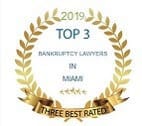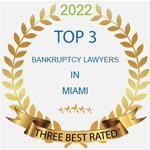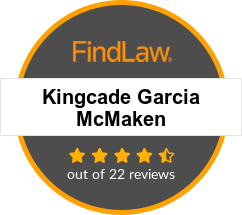Liquidation Exemptions in Florida Bankruptcy Law
Declaring bankruptcy can often weigh heavily as a potential last resort in the minds of those burdened with debt and financial trouble. The thought of choosing to declare bankruptcy may seem to carry negative connotations, making some people hesitant to give the option much consideration. But with proper preparation, including identifying and utilizing exemptions, bankruptcy can be a successful way to clear a path to financial recovery.
Bankruptcy is an Exit, Not a Dead End
While bankruptcy isn’t often cast in the best light, the process is less a dead end than a way out. Bankruptcy is intended to provide individuals and businesses with a means by which to settle, reduce or eliminate debts under the legal authority and supervision of the courts. This typically involves the seizure and sale of assets to repay those debts, but federal and state exemption laws can protect certain assets from liquidation.
Exemptions Protect Some Assets
If you decide to declare bankruptcy, you may be eligible for special exemptions that will legally protect some of your assets against seizure. While laws differ from state to state, Florida state law guarantees a range of several exceptions, according to the Tampa Bay Bankruptcy Center.
For many families, the most important asset of all is their home. Fortunately, your home may be protected from seizure under the Florida Homestead Exemption. To qualify, your home cannot be on property exceeding half an acre in the city, or 160 acres in rural and country areas. As long as your home meets these conditions, it cannot be seized by creditors, regardless of any outstanding amount you might owe on the property.
Retirement Funds and Other Supplemental Income
Retirees who worry that their special retirement income will be seized may also be protected by bankruptcy protections. Under Florida state law, pensions, retirement, disability and all government assistance is safe from liquidation and cannot be seized by creditors.
Several additional supplemental sources of income are also exempt from liquidation during the bankruptcy process in Florida. These include any workers’ compensation you receive, alimony and child support payments, as well as unemployment benefits.
College and Medical Savings Accounts
Money set aside in a specific fund to pay for your child’s college education is also exempt under Florida law. As long as the money is in a prepaid college fund, trust, or any other special fund specifically meant to go toward the cost of a child’s college education, it is safe from seizure.
It may also be helpful to know that if you have a medical savings account comprised of special tax-deferred savings intended to pay for medical expenses, this, too, is exempt from liquidation during bankruptcy in Florida.
Identifying specific assets and sources of income that will be protected during bankruptcy can help you to plan for the liquidations that will occur once you have actually declared bankruptcy. To learn more about bankruptcy and the exemption options that may be available to you, contact an experienced bankruptcy lawyer today.
















